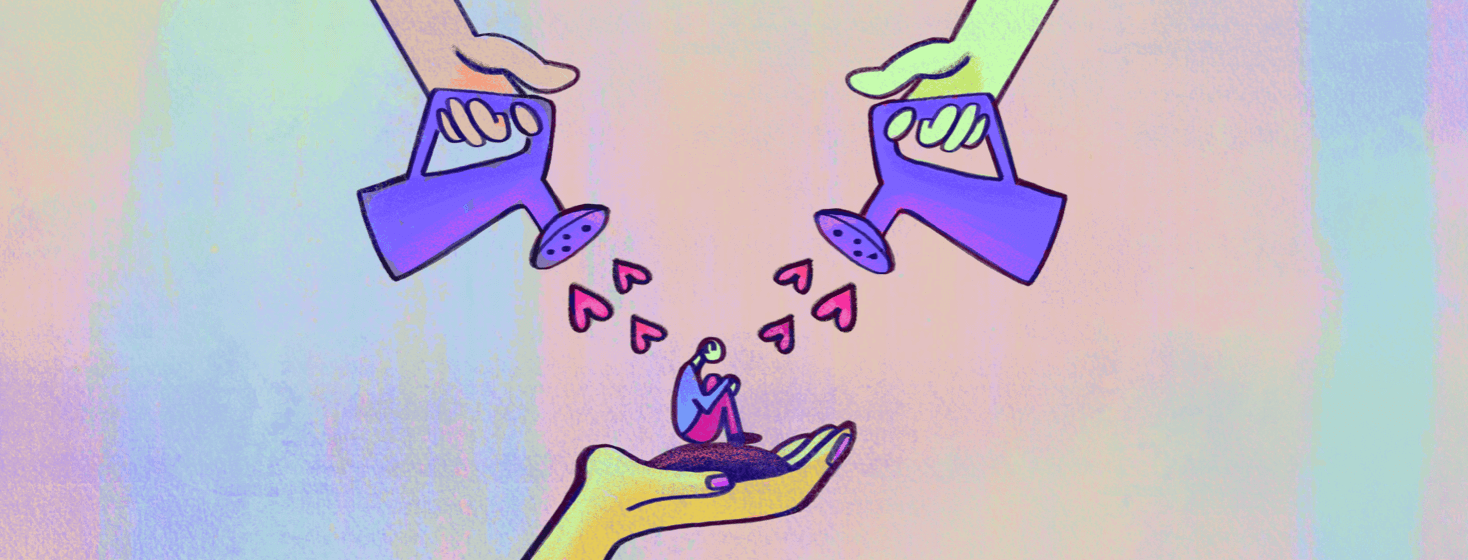The Difference Between People Who Care and Caregivers
When someone is diagnosed with a serious illness like cancer, people react in a variety of ways. For me, the range has been from ghosting (meaning totally disappearing) to treating me as if I'm imminently dying (think tears and rambling pre-death eulogistic messages) to a rather unhealthy interest (nearly voyeuristic), often known as "grief tourists."
Managing the expectations and interests of everyone can be a really complicated thing, especially when family is involved and especially when family is doing the "wrong" thing.
What is the difference?
But how do you differentiate when someone is a caregiver or someone who cares for you? I'm not talking about caregivers that are paid to do different tasks, like a CNA or a nurse.
That sort of caregiving is clear; what I'm talking about is the people around you who might be doing things like going to appointments or staying with you in the hospital or covering responsibilities when you can't or grocery shopping. Tangible tasks, I think, are a place to start.
Spouse/partner
The first category of people who can qualify, I think, as a caregiver are those people whose lives are inextricably joined to yours. What you can do around the house or how you are able to travel or physically do something affects them immediately.
If you are up all night because of a side effect from treatment or you have to go to many many doctors' appointments and need someone to be there, they are immediately affected.
Now, I realize that some spouses/partners are disconnected from the cancer experience emotionally at times, but the physical effects are the same.
While this isn't a huge part of this article, I do also need to mention that spouses/partners are affected by the toll that medication can take on our libido, tissues, and all-around feelings about ourselves.
Family
The second category of people who may qualify as caregivers are family members. Again, family members are often affected directly by a cancer diagnosis and treatment in that the person who has cancer isn't the same. For example, I am the eldest of 6 children and I have often been called a "third parent," which isn't always a compliment.
Suffice it to say, I was cast in a caregiving role as soon as my first sibling was born and that has continued in a variety of ways into adulthood. Yes, my training and experience as a lawyer have also affected this role since I was typically the first call about legal issues, like getting bailed out of jail, as well.
Each of my relationships with my family has been affected by my diagnosis and some of them haven't handled that well at all. I realized pretty quickly that my relationships with some people were based on what I was giving to them, not a bilateral supportive relationship, and that has affected my response significantly.
Featured Forum
View all responsesSo, how do we figure out if a family member is a caregiver?
I think it comes down to priorities.
- Does the family member prioritize our needs above others or themselves? Do they think about how a situation would disproportionately affect the family member who needs more than others?
- Do they schedule tasks or trips or being unavailable with the chemo or other treatment schedule of the person with cancer?
- Do they adjust their expectations of others in the family to ensure that you are in the center of the ring?
If you answer each of these questions with a yes, then that family member might be a caregiver rather than "just" someone who cares about you.
Physical vs. emotional support
One other thing to mention here is that the majority of what I've described is physical. There is also a different area of support, which is much more difficult to pin down and that is emotional support.
I have lots of friends who have my treatment schedule on their calendar, they don't ask me to go to gatherings when it would conflict with my good/bad weeks, and check in on me regularly. Some of them, I think, cross over into emotional caregiving.
Now it's your turn -- do you have people you would identify as caregivers in your life?

Join the conversation